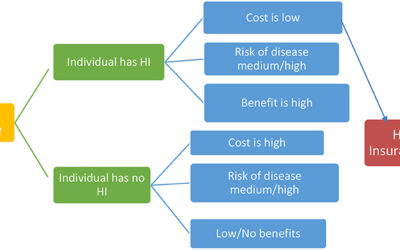A rising awareness about workplace mental health problems emerged during the last ten years although workplace stigma against mental health continues to exist.
The World Health Organization reports that mental health disorders rank among the major contributors to disability worldwide because they impact numerous workplace employees.
Worker reluctance to report mental health issues exists mainly because employees fear being subject to discrimination and workplace reprisals.
Companies that care about mental health of their employees enjoy both enhanced staff productivity and fewer sick days and establish a better workplace atmosphere.
Robust mental health policies developed by employers represents the most productive method for both ensuring employee wellbeing and building healthy work environments.

The Importance of Mental Health Policies in the Workplace
- Enhancing Employee Wellbeing Mental health support from workplace administration creates an environment which enables staff members to flourish effectively. The establishment of mental health policies provides employees with an unthreatening structure to obtain assistance while expanding their ability to manage their mental health.
- Providing employees access to counseling help and Employee Assistance Programs reinforces their understanding that mental health matters to their employer. The support of both mind and emotions in the workplace directly results in higher employee engagement and stronger feelings of value toward their work.
- This, in turn, leads to greater job satisfaction, higher morale, and a more resilient workforce. Reducing Absenteeism and Presenteeism The presence of mental health issues that produce depression along with anxiety and stress causes employees to miss work to care for their mental health needs.
- Workers present physically at work offset their potential by showing up when their minds or health state hinders their performance quality in cases of “presenteeism.” The outcome of such situations leads to diminished productivity combined with subpar decision quality.
- Mental health policies designed for the workplace succeed in reducing absenteeism and presenteeism through immediate access to help services and by establishing workplaces that support employees dealing with psychological problems.
- Employers who develop and deliver proactive mental health policiessolutions including stress management sessions together with flexible schedule programs will assist employees in reducing the negative impact of mental health problems on workplace performance.
Mental Health Policies–Improving Employee Retention and Engagement
🔘 Provider support along with care for employees leads them to maintain their loyalty to the organization. Mental health policies that focus on employee wellbeing directly create a positive organization culture that helps companies strengthen their recruitment and retention of exceptional workers. Workers who feel their mental health gets proper recognition demonstrate lower propensity to search for different employment. The success of a company benefits from productive workers who maintain mental health because they remain engaged and motivated at their jobs.
🔘 Totally addressing mental health policies enables companies to build workplaces which promote trust and loyalty combined with general job contentment. Successful mental health policies require crucial fundamental elements for their realization. Mental health policies need comprehensive practices which incorporate specific requirements for the workforce while delivering protections for their needs. A mental health policy for workplaces should contain the following essential features during development:
🔘 Clear Communication and Education Employers should establish clear communication about mental health policy contents alongside essential mental health awareness so employees can eliminate workplace stigma. The employer should inform workers about their available mental health resources starting with counseling programs while additionally promoting employee assistance programs and support groups for help seeking.
Employee mental health awareness sessions that happen regularly teach individuals to identify mental distress within themselves and their coworkers so they know how to respond effectively. The leadership team must show genuine support by openly discussing mental health matters without any kind of stigma or embarrassment.
🔘 Access to Mental Health Resources An efficient mental health policy demands that workers can conveniently obtain tools to help them handle their mental health. Employees must have open access to confidential counseling through workplace-based resources as well as fundamental information about local mental health facilities and implementation of an Employee Assistance Program. Through EAPs employees gain access to multiple confidential services such as mental health counseling as well as legal help in addition to financial consultations. Through mental health services organized by employers employees get access to vital outside help which helps them address professional and personal struggles when dealing with stress and burnout.

🔘 Flexible Work Arrangements When employees experience work-related stress and burnout it becomes worse because of strict work hours coupled with restricted schedule choices. Workplace flexibility in the form of remote work availability and adaptable working hours and shared position opportunities leads to better mental health control for employees. Staff members who work from home or have flexible schedules can build personal-workplace harmony according to their needs thus reducing work-related pressure and enhancing their mental state. The policy holds particular importance specifically for workers who need to care for family members and those who experience ongoing mental health challenges.
🔘 Mental Health Days and Paid Leave When employees receive permission to take mental health days along with paid leave these measures help reduce workplace burnout by promoting their personal health. The policy alerts workers that the need for mental health rest becomes an equivalent priority to physical health recovery. The time spent on a mental health day enables workers to regain energy and concentration while they focus on their well-being to return with higher motivation. Active paid mental health policies protect employees from having to sacrifice income for health maintenance.
🔘 Creating a Supportive Workplace Culture Any effective mental health policy depends on building workplace culture with mental health prioritization. Employers must maintain an open space which allows staff members to express their mental health needs and access the assistance they need. Managers can conduct periodic meetings which promote honest stress-related and mental health discussions by providing staff support networks. Employee mental health issues can be prevented from worsening by recognizing burnout symptoms and taking prompt measures to alleviate stress or provide support system modifications.
🔘 Confidentiality and Privacy A mental health policy needs to protect the confidentiality of patient information at all times. All mental health data of employees needs to remain under strict privacy rules while receiving appropriate respect from the organization. Employees should trust that mental health information remains confidential so authorized staff members receive the only access to sensitive health records. A formal reporting process needs to exist which guarantees employees can report their problems while maintaining confidentiality from workplace discrimination and revenge actions.
Practical Steps for Implementing Mental Health Policies
- Organize a survey to determine present mental health requirements. A workplace mental health policy needs to be implemented only after companies evaluate their existing mental health situations. A comprehensive assessment of employee needs requires various assessment methods such as surveys and focus groups to recognize support shortcomings and worker requirements. Employers should collect employee feedback because it enables them to develop policies which match the requirements of their organization.
- Collaborate with Mental Health Professionals The development of mental health policies requires expert mental health consultation because it ensures that implemented policies consistently deliver proven effects. Health professionals provide essential knowledge about which employee resources and helpful interventions along with workplace support systems will work best.
- Train Managers and HR Staff Managers together with HR personnel maintain vital responsibility for supporting workers’ mental wellness. Organizations achieve better employee support when managers acquire necessary skills to detect mental health indicators and offer assistance and promote treatment searching options for their personnel.
- Continuously Monitor and Evaluate the Policy The established mental health policy demands ongoing evaluation for adjustment purposes after its implementation. Employee mental health evaluation relies on continuous feedback sessions and resource tracking alongside evaluations of team member satisfaction ratings.
Conclusion: A Commitment to Employee Wellbeing
Businesses experience sustained workforce success when they focus on mental health policies because such initiatives form an essential element of employee wellbeing.
Employers who build supportive flexible yet proactive workplaces achieve employee mental and emotional stability which results in better productivity together with decreased absenteeism while retaining workers.
The workplace demands attention to mental health support through wholehearted business implementation of policies which encourage employee wellbeing.


